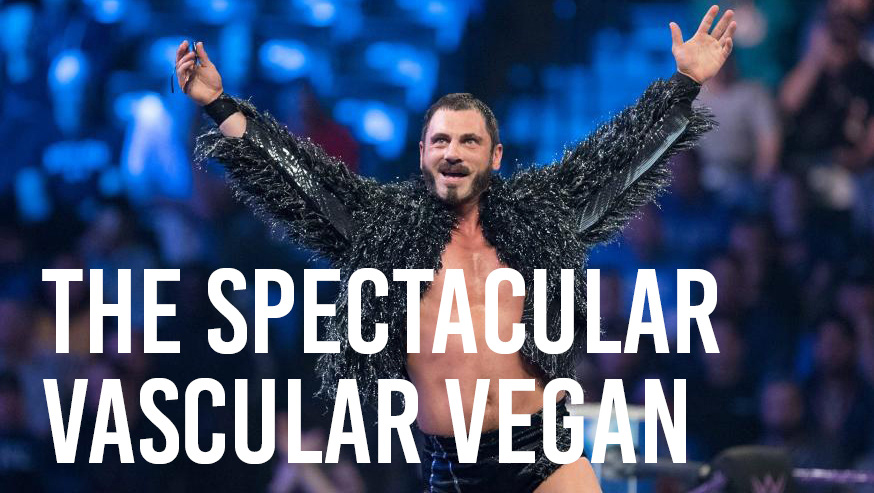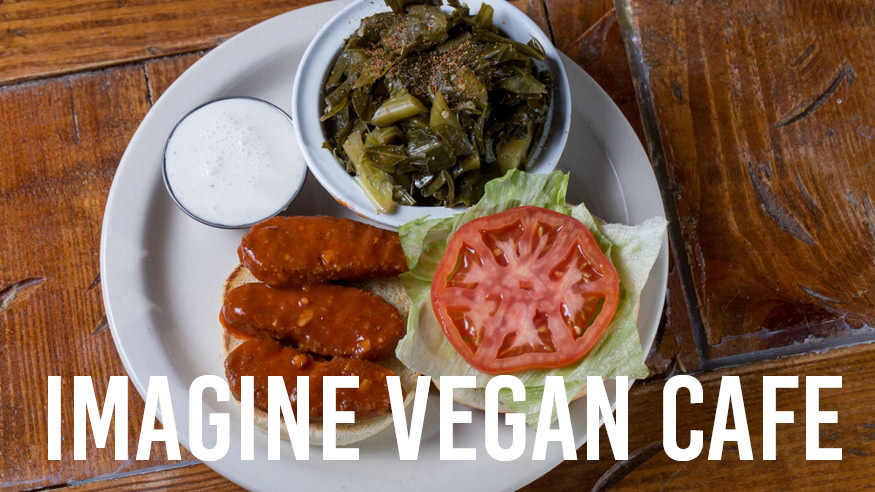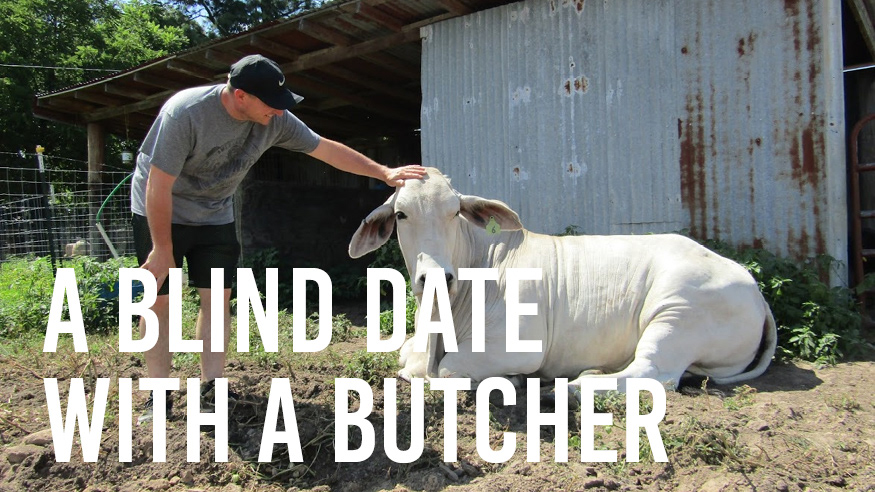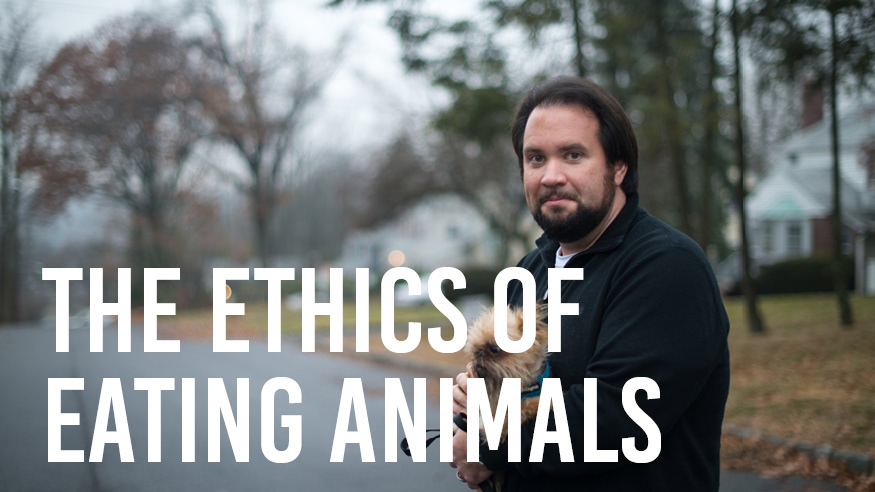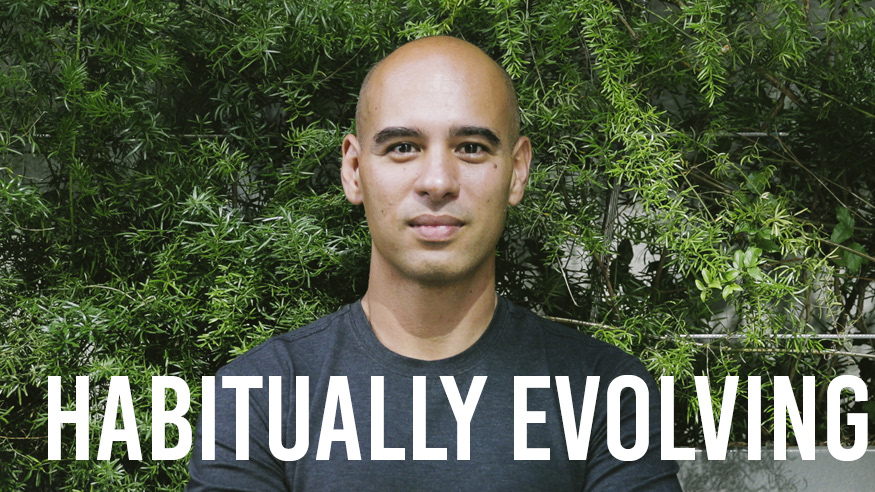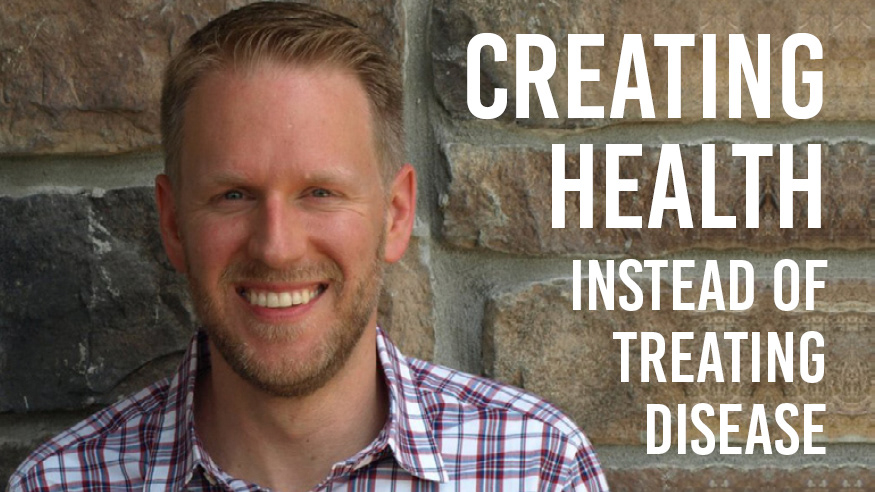The Journey of Kendrick Farris from the Olympics to Veganism
by Clay Garrett
Like a local celebrity, Kendrick Farris graciously greeted a couple of older men who recognized him as he and I made our way out of the community center at Bill Cockrell Park in Shreveport, Louisiana, after a spirited hour-and-a-half interview. The 33-year-old Farris is a Shreveport native who grew up in the Stoner Hill neighborhood, and he told me he still occasionally works out in the community center’s tiny gym in which we conducted our interview. But his lifelong residency in Louisiana's third-largest city isn’t the reason these gentlemen recognized Kendrick. One of them called to him:
“Hey, Mr. Olympics! You only eat cabbage and carrots. Ain't that right?”
Kendrick Farris is a three-time Olympic weightlifter with two top-10 Olympic finishes, and he most recently competed in the 2016 Rio games. Farris earned both gold and silver medals in the Pan American Championships and, during the 2016 Olympic trials, Farris set the American record by lifting a total of 831 pounds. However, as the quote above suggests, Kendrick is known as much for his diet as for his Olympic exploits. He set the American total-lift record and competed in the 2016 Olympics games in Rio, as a vegan (you knew that was coming!).
Childhood
Farris grew up in an area he described as “rough” with all the stereotypical trappings reserved for the term “inner city.” As a child he played any and all sports including football, softball, basketball, karate, and more. After the 1996 Olympics in Atlanta, USA weightlifting started a grassroots program to introduce kids to the sport of weightlifting. Kendrick's uncle, Kevin Burns, read that one of these programs was launching in Shreveport. Burns saw the program as an opportunity for his nephew to learn proper weightlifting techniques. So at age 12, Kendrick Farris began his weightlifting career.
The USA Weightlifting Development Center was directed by Dr. Kyle Pierce, who would coach Farris through all three Olympic Games. Pierce was the first person outside of Kendrick’s family to believe this child could achieve great things. He taught Kendrick how to set goals, develop a plan, and create structure to reach those goals. But perhaps patience and persistence are the most important lessons Dr. Pierce taught Kendrick; when he failed or suffered a setback, Dr. Pierce would say, “You have to find the positive.” And then he helped him do it.
Graduation to the Olympics
After high school graduation in 2004, Kendrick thought he was going to be on the Olympic team — he didn’t realize Olympic hopefuls had to qualify for it. He tried, but he didn’t even qualify for the 2004 Olympic trials, let alone the team. This disappointment helped Kendrick realize just how much would be required to reach his goal.
Later, Kendrick was working at a local restaurant when a co-worker called him over to the TV, which was showing Olympic weightlifting, and asked, “Isn’t this what you do?” Kendrick replied, “That’s right. I’m going to be on the next team!”
“It sounded crazy because I was in a restaurant working and talking about being on an Olympic team, but that moment was the spark. I quit working at the restaurant and solely started focusing on weightlifting.”
In 2006, after the birth of his first child, a son, Kendrick re-dedicated himself to making the Olympic team. Kendrick says his son saved his life. Growing up in the inner city, Kendrick had grown up angry; his son, he says, helped him to overcome and transcend his childhood anger. His son represents a defining moment that made him realize he was on a potentially self-destructive path and needed to change.
He did. Farris won back-to-back national titles in 2006 and 2007 en route to qualifying for his first Olympic team in 2008. He went on to set American records and finished sixth at the Beijing Olympics.
The 2012 Olympics in London
Between the 2008 and 2012 Olympics, Farris married. He believes this led to making the 2012 games in London his easiest Olympics, because his wife further helped him set a structure and develop focus. Kendrick was the only man to represent the US in weightlifting at the Olympic Games in London, where he finished eighth.
Because of the US team’s subpar performances in between Olympic years, the US weightlifters had to quality not only for the team but for the games themselves, unlike in 2008. The US would go on to earn a wildcard spot in the London games and, because Kendrick was ranked number one in the nation, the Olympic spot went to him. However, qualifying for the 2012 games meant he was required to compete in more than twice the number of competitions than he’d done to qualify for the 2008 Olympics. As a result of this extra weightlifting work, Kendrick was dealing with several minor injuries during the 2012 Olympics — making his results even more phenomenal.
Going Vegan
“I wanted to teach my children something different. So it started with culture, then health, and then I gravitated to other things. There is so much in veganism to be passionate about. Different individuals have different parts [of it] that ignite something in them.”
In 2014, while his wife was pregnant with his second son, Kendrick began exploring his family history. He discovered that his family roots were those of Hebrew Israelites. As he continued his research, he discovered several athletes who had also explored their Hebrew roots including the late NFL great Reggie White and former NBA star Amar'e Stoudemire. Further research revealed how rarely Farris’s ancestors had consumed meat or dairy. He quickly realized that there was simply no reason for the animal suffering created by the standard American diet.
“People have asked me before about animals’ rights, and we know it’s not supposed to be the way all this is. This isn’t right; I’m not with that. You have to respect all life.”
The insights of pathologist, herbalist, biochemist, and naturalist Dr. Sebi served as Kendrick’s primary inspiration for his diet research. Media figures like Russell Simmons and Jay-Z were also influential to Farris, and in late 2014 Farris gave up all animal products. He felt an immediate impact when he changed his diet.
“I felt like I was recovering faster, hitting that deeper realm of sleep a lot. It makes sense if you think about it. Regardless of what people want to eat, there are just certain foods that are detrimental to your health — same with performance. So I eat foods that enhance my performance.”
Before his change to a vegan diet (he prefers the label Torah/Kosher), Kendrick didn’t put a lot of thought into what he ate: “Name it, I’d eat it. When I look back, I see the damage I was doing to my body.” He admits that the hardest thing for him to give up was cheese; fortunately, some of the plant-based alternatives were very helpful in his transition. Farris told me that when he talks about a vegan diet to other people, they are often afraid they won’t have much to eat if they become vegan, partly because they don't realize how restricted their previous diets actually were until the switch. Specifically, Kendrick hadn’t heard before of the many varieties of legumes, vegetables, and spices he could eat until after he changed his diet.
“When people ask where I get my protein, I answer, ‘I get my protein first hand, from the source. Animals are the second source. Why not go right to the source?’”
The 2016 Olympics in Rio
During the Olympic trials, on May 8, 2016, Farris set the American record by lifting a total of 831 pounds: 370 pounds in the snatch and 461 pounds in the clean and jerk. This, along with his win at the Pan Am Championships just four weeks later, paved the way for him to secure his spot on his third consecutive Olympic team — and his first as a plant-based athlete. Most Olympic athletes only make one Olympic team; making his third at age 30 is a testament to Kendrick’s work ethic and his vegan diet. Farris was once again the lone man to represent US weightlifting in the Olympics by earning a wildcard spot, similar to the 2012 games.
“Doing all those competitions and training back-to-back hindered my performance but not my desire to showcase what I could put my body through — even at the age of 30, which is considered ancient in weightlifting years.”
The weight class Kendrick had competed in during the 2008 and 2012 games had been eliminated due to the amount of positive drug tests. This forced Kendrick to put on weight to compete in a heavier weight class in Rio, where he eventually finished 11th.
“To me the best argument is results, and you can’t argue with my results. There’s too many pictures. There’s too much video. I’ve been strong my whole life, and I’m telling you, this makes me stronger!”
Doping is a problem that plagues the sport: Weightlifting incurs more positive drug tests than all other Olympic sports combined. This means that at any given event, Farris can expect to compete against athletes from countries known for systematic doping.
Getting involved in The Game Changers
After the Rio games, representatives from the documentary film The Game Changers reached out to Farris in through social media. After some initial trepidation, Farris agreed to tell his story and do some interviews with other athletes for the film. He saw an early screening of it at Sundance, where it got a very good response. However, he says the film has gone through several cuts since he saw it, and new footage has been added that has only enhances its quality.
“I was hesitant to be interviewed for the film because a lot of what I say gets taken out of context. But I’m glad the directors stayed true to their word and did an excellent job of highlighting everyone’s contribution to the topic. I’m very excited to be a part of the film and even more excited for people to see the finished version.”
What he does when he isn’t lifting weights
Kendrick developed and operates BlessTheGym, a sports performance brand, to teach young athletes the importance of physical activity and nutrition. BlessTheGym hosts a number of events, giving back to the types of communities Farris came from. Through BlessTheGym’s weightlifting program, Farris’s goal is to build leaders with strong character and perseverance who can succeed in any endeavor. BlessTheGym has partnered with a number of organizations including The Kings Of Weightlifting, a free after school program for kids in South Central Los Angeles. Additionally, Farris has traveled to Canada, Ecuador, Saudi Arabia, and other countries to work with many different people.
His goal: to encourage questioning about veganism and health
He strives to be as approachable as possible when discussing veganism:
“If you can’t look at me and be intrigued by what I’m doing, then maybe I’m not the guy for you. Some other vegan might resonate better with you. I don’t take it personally.”
Kendrick’s goal is simply to get people to start asking questions, just as he did. Why do you eat like everyone else? Why does he eat differently? Is your current diet helping you? He encourages everyone to take a step back from their lives and reevaluate them from a different perspective. He told me he felt he was meant to do something great, and although very few people have the strength to set an American weightlifting record, everyone has the strength to start asking questions. As Kendrick would say, “True.”

